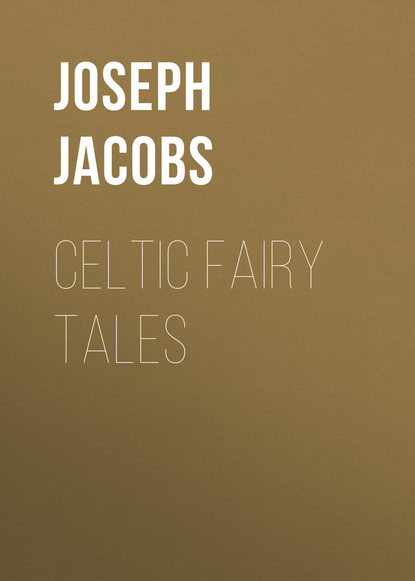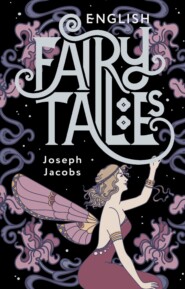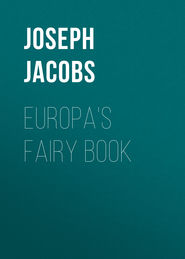По всем вопросам обращайтесь на: info@litportal.ru
(©) 2003-2025.
✖
Celtic Fairy Tales
Настройки чтения
Размер шрифта
Высота строк
Поля
So they went, and Tom held the Lepracaun fast in his hand, and never took his eyes from off him, though they had to cross hedges and ditches, and a crooked bit of bog, till at last they came to a great field all full of boliauns, and the Lepracaun pointed to a big boliaun, and says he, "Dig under that boliaun, and you'll get the great crock all full of guineas."
Tom in his hurry had never thought of bringing a spade with him, so he made up his mind to run home and fetch one; and that he might know the place again he took off one of his red garters, and tied it round the boliaun.
Then he said to the Lepracaun, "Swear ye'll not take that garter away from that boliaun." And the Lepracaun swore right away not to touch it.
"I suppose," said the Lepracaun, very civilly, "you have no further occasion for me?"
"No," says Tom; "you may go away now, if you please, and God speed you, and may good luck attend you wherever you go."
"Well, good-bye to you, Tom Fitzpatrick," said the Lepracaun; "and much good may it do you when you get it."
So Tom ran for dear life, till he came home and got a spade, and then away with him, as hard as he could go, back to the field of boliauns; but when he got there, lo and behold! not a boliaun in the field but had a red garter, the very model of his own, tied about it; and as to digging up the whole field, that was all nonsense, for there were more than forty good Irish acres in it. So Tom came home again with his spade on his shoulder, a little cooler than he went, and many's the hearty curse he gave the Lepracaun every time he thought of the neat turn he had served him.
THE HORNED WOMEN
A rich woman sat up late one night carding and preparing wool, while all the family and servants were asleep. Suddenly a knock was given at the door, and a voice called, "Open! open!"
"Who is there?" said the woman of the house.
"I am the Witch of one Horn," was answered.
The mistress, supposing that one of her neighbours had called and required assistance, opened the door, and a woman entered, having in her hand a pair of wool-carders, and bearing a horn on her forehead, as if growing there. She sat down by the fire in silence, and began to card the wool with violent haste. Suddenly she paused, and said aloud: "Where are the women? they delay too long."
Then a second knock came to the door, and a voice called as before,
"Open! open!"
The mistress felt herself obliged to rise and open to the call, and immediately a second witch entered, having two horns on her forehead, and in her hand a wheel for spinning wool.
"Give me place," she said; "I am the Witch of the two Horns," and she began to spin as quick as lightning.
And so the knocks went on, and the call was heard, and the witches entered, until at last twelve women sat round the fire—the first with one horn, the last with twelve horns.
And they carded the thread, and turned their spinning-wheels, and wound and wove, all singing together an ancient rhyme, but no word did they speak to the mistress of the house. Strange to hear, and frightful to look upon, were these twelve women, with their horns and their wheels; and the mistress felt near to death, and she tried to rise that she might call for help, but she could not move, nor could she utter a word or a cry, for the spell of the witches was upon her.
Then one of them called to her in Irish, and said, "Rise, woman, and make us a cake."
Then the mistress searched for a vessel to bring water from the well that she might mix the meal and make the cake, but she could find none.
And they said to her, "Take a sieve and bring water in it."
And she took the sieve and went to the well; but the water poured from it, and she could fetch none for the cake, and she sat down by the well and wept.
Then a voice came by her and said, "Take yellow clay and moss, and bind them together, and plaster the sieve so that it will hold."
This she did, and the sieve held the water for the cake; and the voice said again:
"Return, and when thou comest to the north angle of the house, cry aloud three times and say, 'The mountain of the Fenian women and the sky over it is all on fire.'"
And she did so.
When the witches inside heard the call, a great and terrible cry broke from their lips, and they rushed forth with wild lamentations and shrieks, and fled away to Slievenamon, where was their chief abode. But the Spirit of the Well bade the mistress of the house to enter and prepare her home against the enchantments of the witches if they returned again.
And first, to break their spells, she sprinkled the water in which she had washed her child's feet, the feet-water, outside the door on the threshold; secondly, she took the cake which in her absence the witches had made of meal mixed with the blood drawn from the sleeping family, and she broke the cake in bits, and placed a bit in the mouth of each sleeper, and they were restored; and she took the cloth they had woven, and placed it half in and half out of the chest with the padlock; and lastly, she secured the door with a great crossbeam fastened in the jambs, so that the witches could not enter, and having done these things she waited.
Not long were the witches in coming back, and they raged and called for vengeance.
"Open! open!" they screamed; "open, feet-water!"
"I cannot," said the feet-water; "I am scattered on the ground, and my path is down to the Lough."
"Open, open, wood and trees and beam!" they cried to the door.
"I cannot," said the door, "for the beam is fixed in the jambs and I have no power to move."
"Open, open, cake that we have made and mingled with blood!" they cried again.
"I cannot," said the cake, "for I am broken and bruised, and my blood is on the lips of the sleeping children."
Then the witches rushed through the air with great cries, and fled back to Slievenamon, uttering strange curses on the Spirit of the Well, who had wished their ruin; but the woman and the house were left in peace, and a mantle dropped by one of the witches in her flight was kept hung up by the mistress in memory of that night; and this mantle was kept by the same family from generation to generation for five hundred years after.
CONALL YELLOWCLAW
Conall Yellowclaw was a sturdy tenant in Erin: he had three sons. There was at that time a king over every fifth of Erin. It fell out for the children of the king that was near Conall, that they themselves and the children of Conall came to blows. The children of Conall got the upper hand, and they killed the king's big son. The king sent a message for Conall, and he said to him—"Oh, Conall! what made your sons go to spring on my sons till my big son was killed by your children? but I see that though I follow you revengefully, I shall not be much better for it, and I will now set a thing before you, and if you will do it, I will not follow you with revenge. If you and your sons will get me the brown horse of the king of Lochlann, you shall get the souls of your sons."
"Why," said Conall, "should not I do the pleasure of the king, though there should be no souls of my sons in dread at all. Hard is the matter you require of me, but I will lose my own life, and the life of my sons, or else I will do the pleasure of the king."
After these words Conall left the king, and he went home: when he got home he was under much trouble and perplexity. When he went to lie down he told his wife the thing the king had set before him. His wife took much sorrow that he was obliged to part from herself, while she knew not if she should see him more.
"Oh, Conall," said she, "why didst not thou let the king do his own pleasure to thy sons, rather than be going now, while I know not if ever I shall see thee more?"
When he rose on the morrow, he set himself and his three sons in order, and they took their journey towards Lochlann, and they made no stop but tore through ocean till they reached it. When they reached Lochlann they did not know what they should do. Said the old man to his sons, "Stop ye, and we will seek out the house of the king's miller."
When they went into the house of the king's miller, the man asked them to stop there for the night. Conall told the miller that his own children and the children of his king had fallen out, and that his children had killed the king's son, and there was nothing that would please the king but that he should get the brown horse of the king of Lochlann.
"If you will do me a kindness, and will put me in a way to get him, for certain I will pay ye for it."
"The thing is silly that you are come to seek," said the miller; "for the king has laid his mind on him so greatly that you will not get him in any way unless you steal him; but if you can make out a way, I will keep it secret."
"This is what I am thinking," said Conall, "since you are working every day for the king, you and your gillies could put myself and my sons into five sacks of bran."
"The plan that has come into your head is not bad," said the miller.
The miller spoke to his gillies, and he said to them to do this, and they put them in five sacks. The king's gillies came to seek the bran, and they took the five sacks with them, and they emptied them before the horses. The servants locked the door, and they went away.
When they rose to lay hand on the brown horse, said Conall, "You shall not do that. It is hard to get out of this; let us make for ourselves five hiding holes, so that if they hear us we may go and hide." They made the holes, then they laid hands on the horse. The horse was pretty well unbroken, and he set to making a terrible noise through the stable. The king heard the noise. "It must be my brown horse," said he to his gillies; "find out what is wrong with him."
The servants went out, and when Conall and his sons saw them coming they went into the hiding holes. The servants looked amongst the horses, and they did not find anything wrong; and they returned and they told this to the king, and the king said to them that if nothing was wrong they should go to their places of rest. When the gillies had time to be gone, Conall and his sons laid their hands again on the horse. If the noise was great that he made before, the noise he made now was seven times greater. The king sent a message for his gillies again, and said for certain there was something troubling the brown horse. "Go and look well about him." The servants went out, and they went to their hiding holes. The servants rummaged well, and did not find a thing. They returned and they told this.







